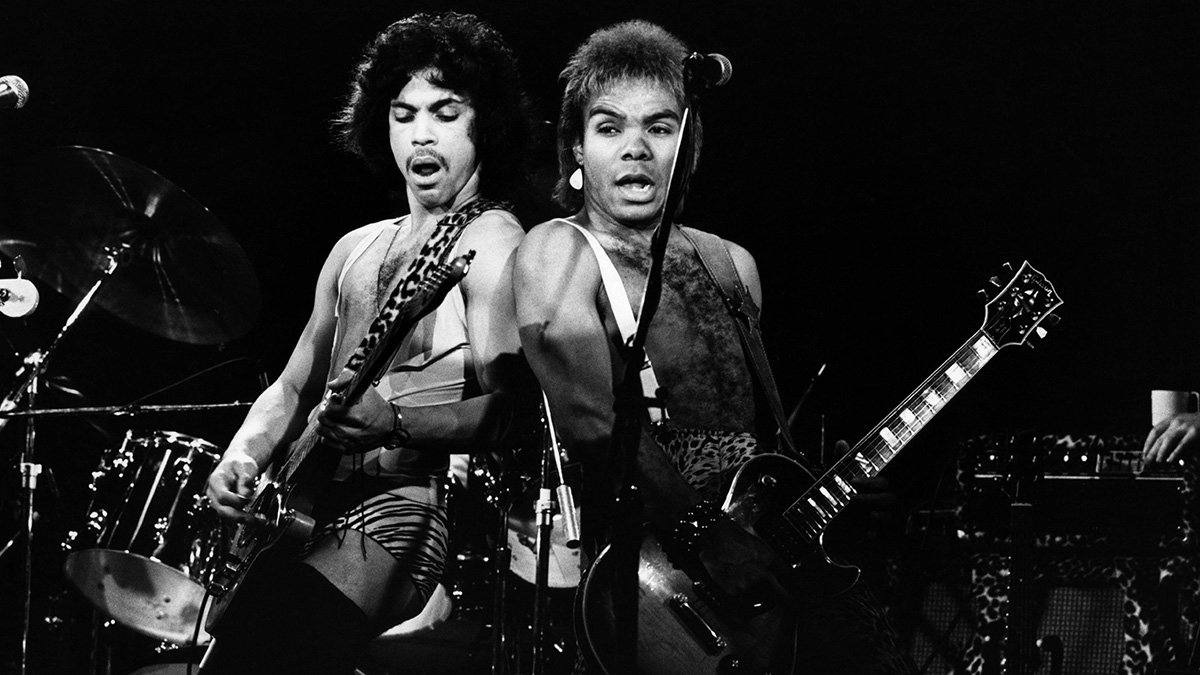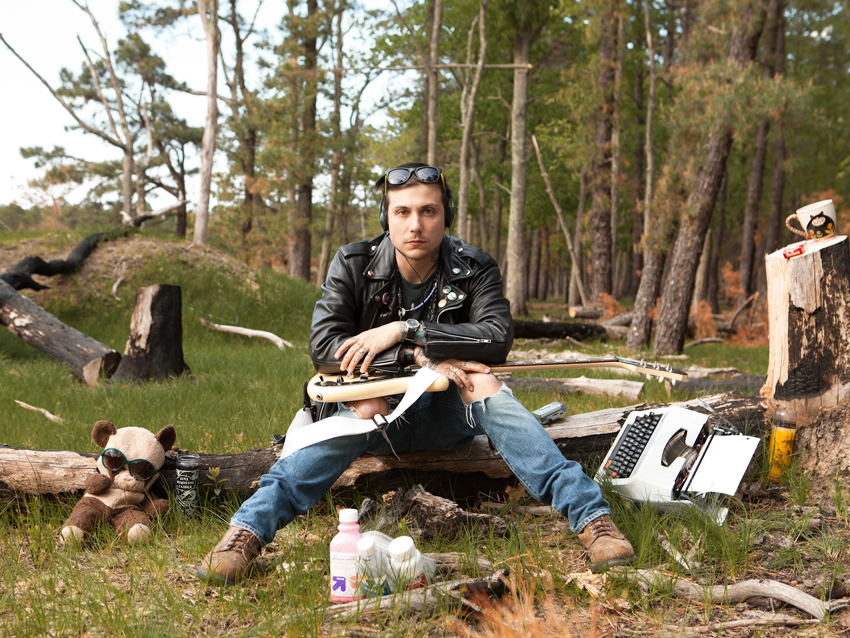
Frank Iero's top 5 tips for guitarists
For the past few years, former My Chemical Romance guitarist Frank Iero has suffered from chronic and, at times, debilitating digestive issues. But the New Jersey resident channeled his pain creatively by converting his basement into a recording studio and becoming an almost one-man band on his fierce, fiery and deeply introspective new album, Stomachaches, which will be released on August 25 under the moniker Frnkiero Andthe Cellebration.
"I decided not to let how miserable I felt physically take over my creative life," Iero tells MusicRadar. "Every time I felt like curling up and dying, I forced myself to go down into the studio and write a song. And on a good day, I was able to ride that creative high and forget about the pain. So I just kept it up, and before I knew it, I had a record.”
In the following interview, Iero talks about the recording of Stomachaches, the guitars and gear he used, and whom he plans to take on the road with him this fall.
After being in My Chemical Romance for so long, was the experience of making your own album daunting? Exhilarating? A little of both?
“Yes, definitely a little of both. It was a very lonesome process, and I don't necessarily mean that in a negative sense. However, it was hard to remember at times that no one was going to be knocking on my door and checking out what I was up to. There was no one else to get excited with. That was probably the toughest part to come to terms with.
“I like creating in a band setting. At some point, you get to show the other members what you've made and they get psyched or inspired, and then the song gets to take a twist or a turn when someone else tags in and records their parts.
“When I began to realize there was not going to be any of that on this record, that took a little getting used to. But the fact that I got to dictate every nuance was exciting. I could pick and choose and save all the mistakes. If it didn't come from my head or my heart, it didn't get on the record. That was an experience I've never really had before, and I really liked it.”
You played all of the instruments except for the drums, which were played by Jarrod Alexander. Yet there's a real band sound to the record. Did you check out other "one-band band" albums as reference?
“Not really. My friend and I had worked on a project together not too long before I started demoing for Stomachaches, where I experimented a lot with programming electronic drums. And we watched Noisy's three-part documentary together on one-man black metal bands. I found that kind of interesting. It’s far from a how-to or anything like that, but I liked seeing their resolve to create for themselves and by themselves.
“At the time, I suppose I didn't think anything more of it than getting an insight to some musicians I like, but maybe it laid a seed subconsciously. I think when you start a project like this, you just end up having to figure things out because of necessity. I really tried to think of my limitations in a different way on this record; I wanted to use them as tools. Nothing was a detriment – just another opportunity to attempt something new.”
How exactly would you track the songs? Was there a specific process? And would Jarrod play live with you, or would be overdub over a click – or both?
“It worked differently for different songs. For the most part, I would program drum tracks and then demo to them. And then Jarrod came in and played along to that tempo map. Sometimes I would play with him on guitar or bass, and then I went back in and recorded all of my parts over him.
“For some songs, though, like the guitars on Stitches, those are the original demo guitars. I didn't want to try and artificially re-create a moment in time. Those guitars were one-take tracks of me trying to figure out what the song wanted to be, and they just ended up feeling right. Even the 'mistakes' felt correct somehow.”
What kind of setup do you have in your home studio? What's your main recording gear? Did you use any other guitars other than your signature model?
“It's a very small, makeshift studio, but it's perfect for me. I have a digital setup, where I record mostly in Logic. A handful of old amps and mics and keyboards, a cheap electronic drum kit and an old Avalon compressor.
“I used my Phantomatic a ton on the record, but I also used a bunch of other guitars that have special places in my heart. The most notable being the first and second guitars I ever owned, a 1979 Fernandes Strat copy my dad bought for me and a 1960s Guild Starfire, given to me by my distant cousin.
“Most of the bass was recorded with my 1960s Gibson Grabber. And there's some samples I recorded of different non-instruments that I incorporated into beats, like the clicking of an old typewriter and me banging on an old tech box with a shoe.”
You're going to tour in the fall. What kind of band will you have - and who's going to be in it?
“Well, we're keeping it pretty bare bones. We're going do a four-piece band right now. It’s my brother-in-law, Evan Nestor, on guitar and vocals, and my friends Rob Hughes on bass and vocals, and Matt Olsson on drums.”
Stomachaches by Frnkiero Andthe Cellebration will be released on August 25. You can pre-order the album here. On the following pages, Iero offers his Top Five Tips For Guitarists.
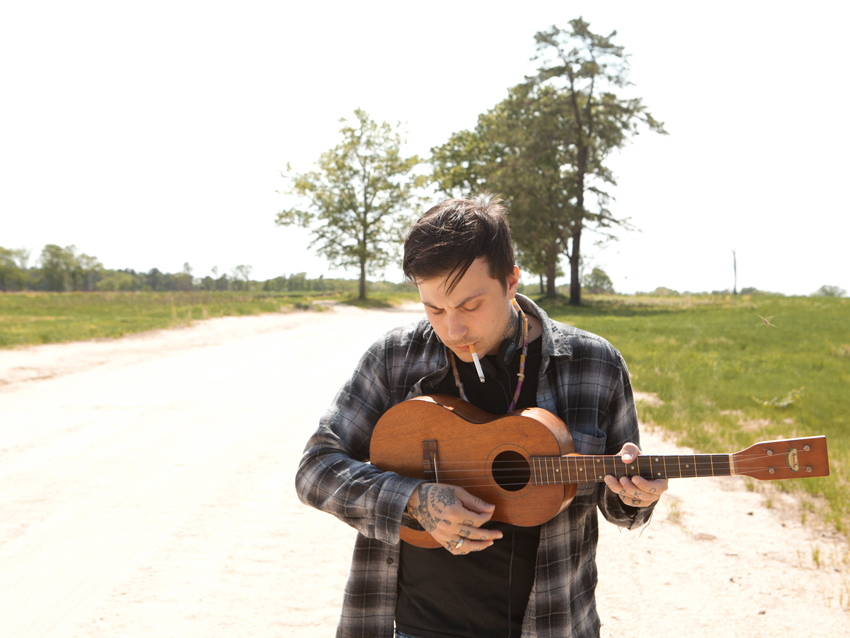
Buy a tuner
“I can't tell you how many people I see spending hundreds and hundreds of hard-earned dollars on a guitar who can't be bothered to drop another 20 on a tuner.
“Some people are blessed with perfect pitch, and that's an incredible gift, but for the most part we are imperfect humans with shitty ears – especially when just starting out. Believe me when I tell you, it is hard enough getting people to listen to your music, so please, do yourself and the world a favor – tune up.”
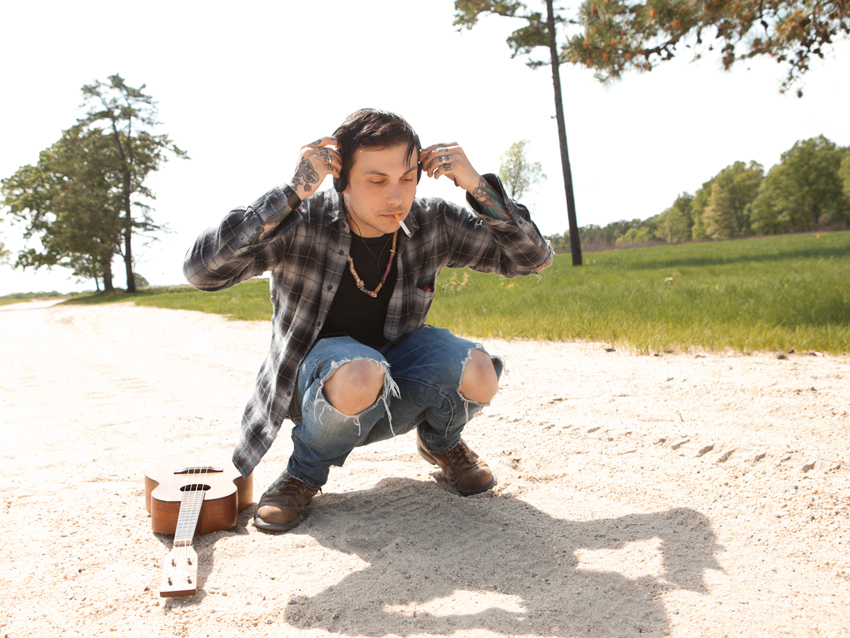
Learn some chords and write a song
“There are fundamentals to every instrument that are imperative to a complete understanding of music and how to play. But how will you know if you could ever truly love it if you don't get to play?
“In addition to studying the rudiments, I recommend learning a few chord positions early on – three or four. Maybe an E, A and D – possibly throw in a G – and just practice going back and forth, in and out, and around and around with these positions.
“Now, take those four chords and write a song or two – or four! Play these rickety songs until your fingers pulsate and bleed, and then write terrible, horrible, cringe-worthy lyrics to them. Do you love it yet?”

Start a band with someone better than you
“The best way to become a better player is to play with someone better than you. If you are the best one in your band and you want to get better, quit that fucking band right away. If you are not the best player, then own that.
“Be self-conscious of your abilities or lack thereof, but in a good way, and humbly strive to get to that next level. No one likes a boastful idiot. Ask questions and be open to criticism. Work tremendously hard at home to practice what you find difficult, and slowly make your way to the position of the best player in the band.
“And then, maybe think about quitting that fucking band.”
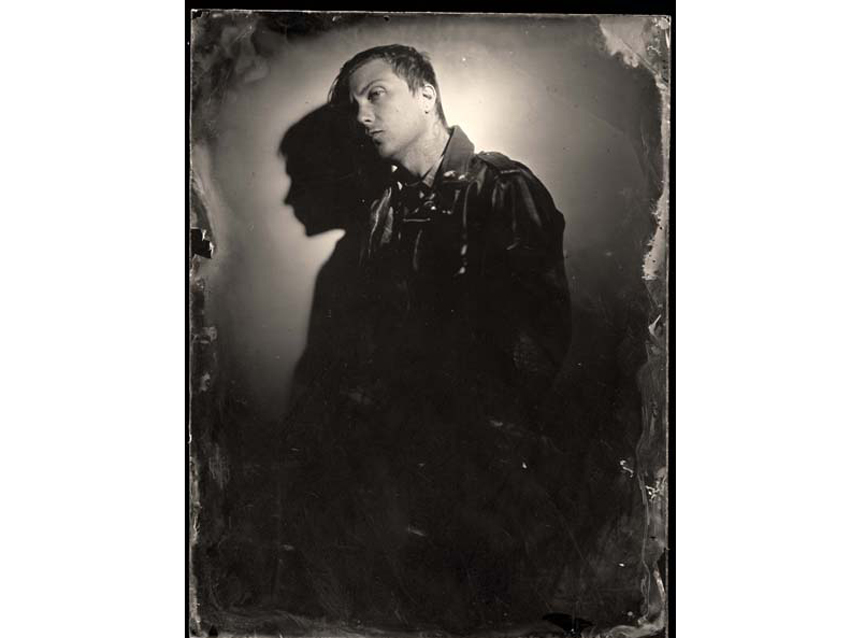
Pick your moments
“Everybody in a band should be doing what's best for the song at all times. Sometimes that means holding down the rhythm as tightly as you can; other times it could mean wanking on your instrument like a crazy person looking for an antidote. And sometimes, it may even mean taking a knee while other parts are meant to shine.
“Support one another and, most importantly, support the song. The 'Look at me! Look at me!-fest' is no fun to watch or hear. If you need maximum attention at all times, please just stay home and make viral YouTube videos.”
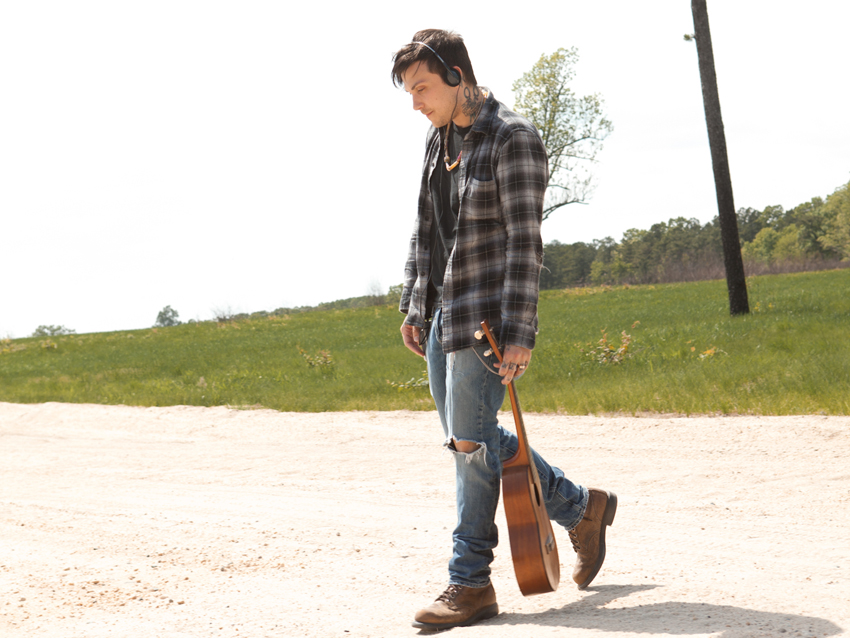
Stretch: your strings, your fingers and your imagination
“Always stretch your strings after a fresh change. Always warm up before a show with easy finger exercises. And when creating or practicing, don't ever be afraid to try and reinvent the wheel.
“Free your mind and try to look at your instrument with fresh eyes once in a while. How would you make sounds or music if you had never seen a guitar before? Play things 'incorrectly' but with confidence and flair. Try to think of your instrument as an extension of your body. Your sound is your voice. If the notes were words, are there synonyms or different languages you could use to get your point across?
“If you're working on a song, record it – the voice memo on your phone is your best friend. Now take a break and come back to listen with fresh ears. Is there something good in there, or should you destroy all of the evidence?”

Joe is a freelance journalist who has, over the past few decades, interviewed hundreds of guitarists for Guitar World, Guitar Player, MusicRadar and Classic Rock. He is also a former editor of Guitar World, contributing writer for Guitar Aficionado and VP of A&R for Island Records. He’s an enthusiastic guitarist, but he’s nowhere near the likes of the people he interviews. Surprisingly, his skills are more suited to the drums. If you need a drummer for your Beatles tribute band, look him up.
